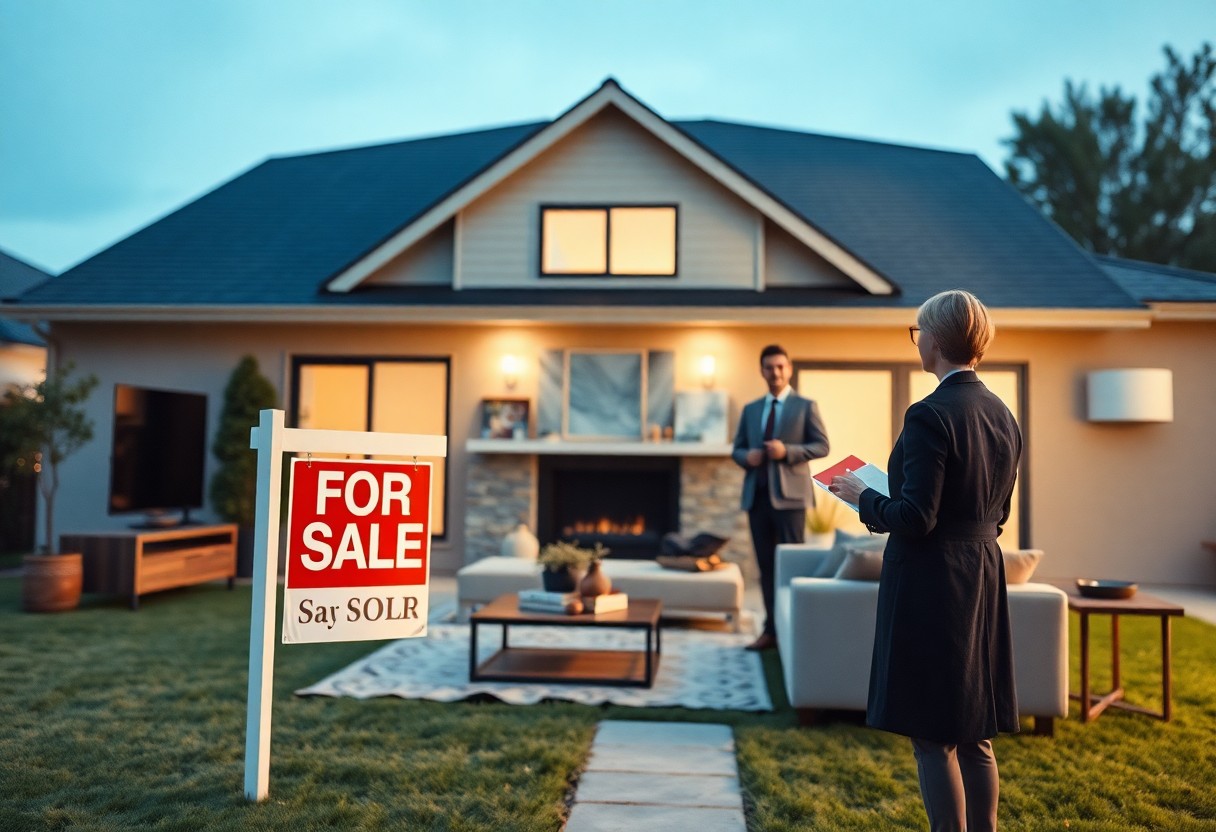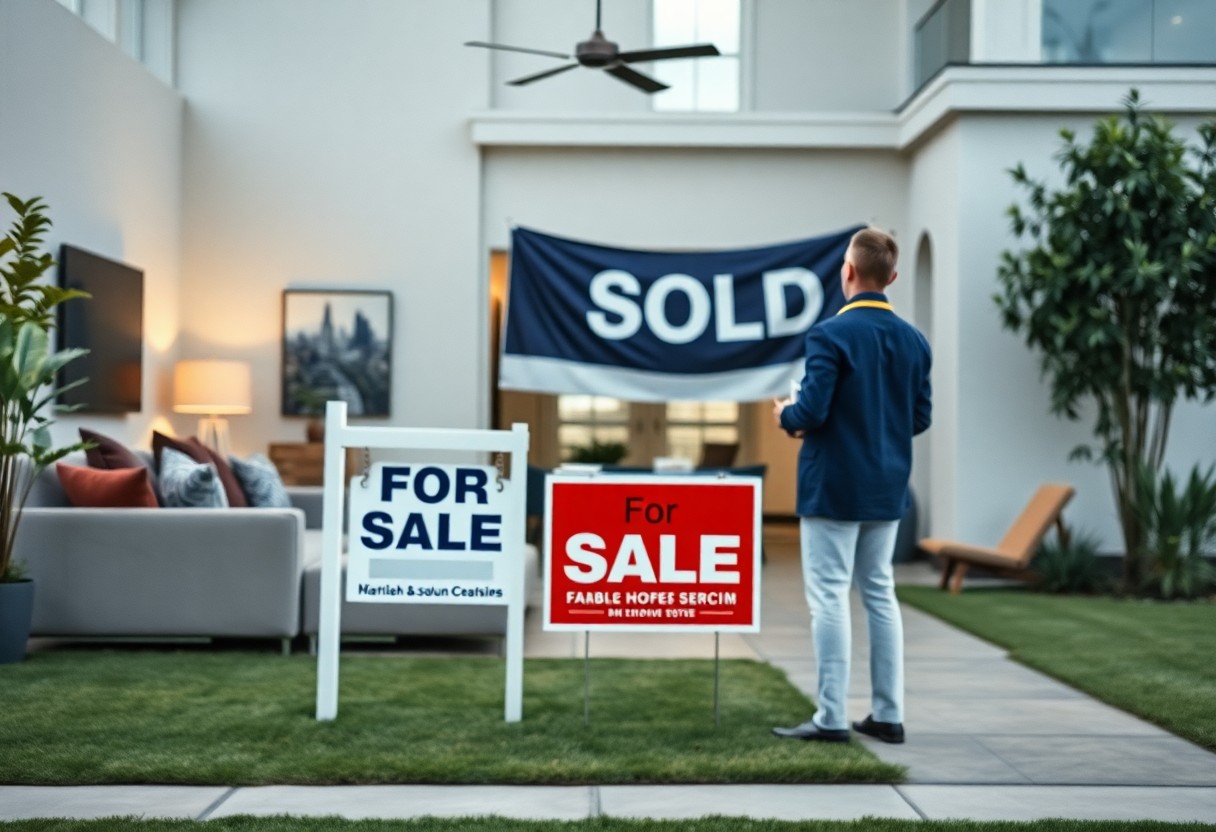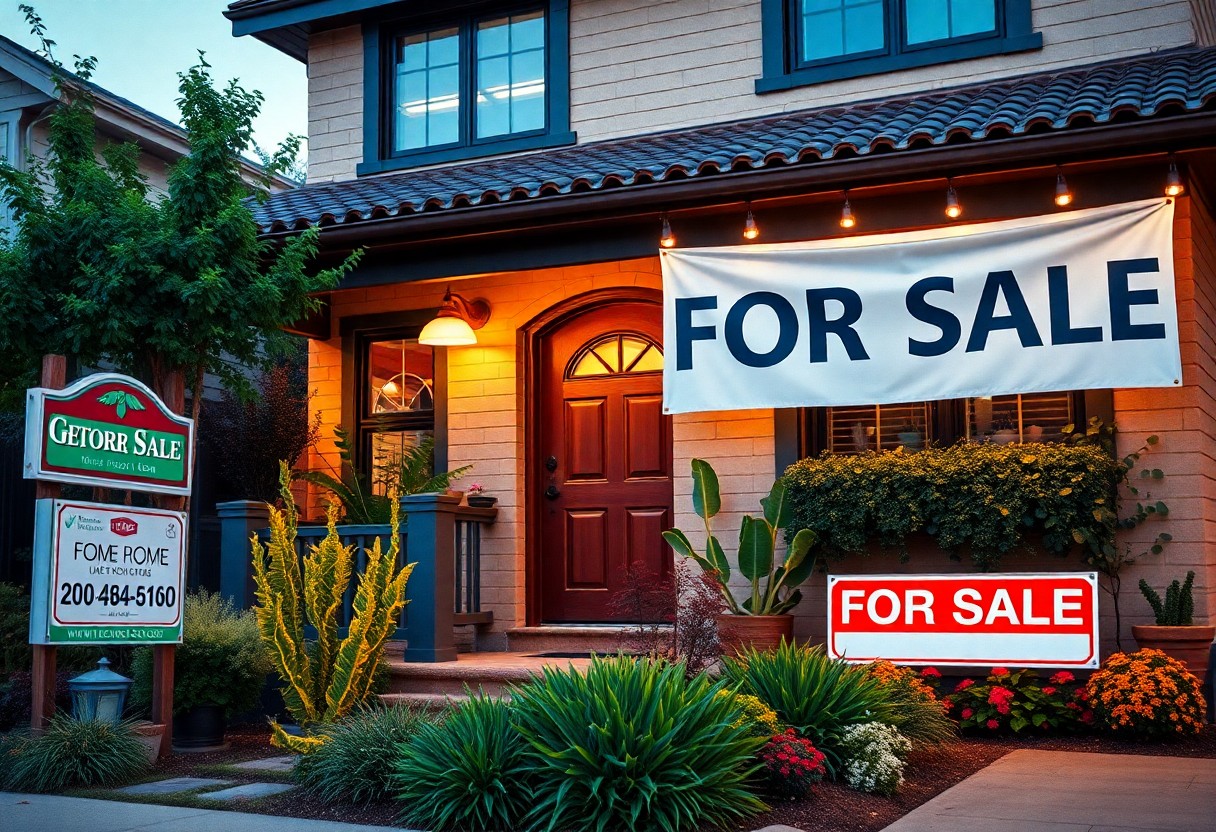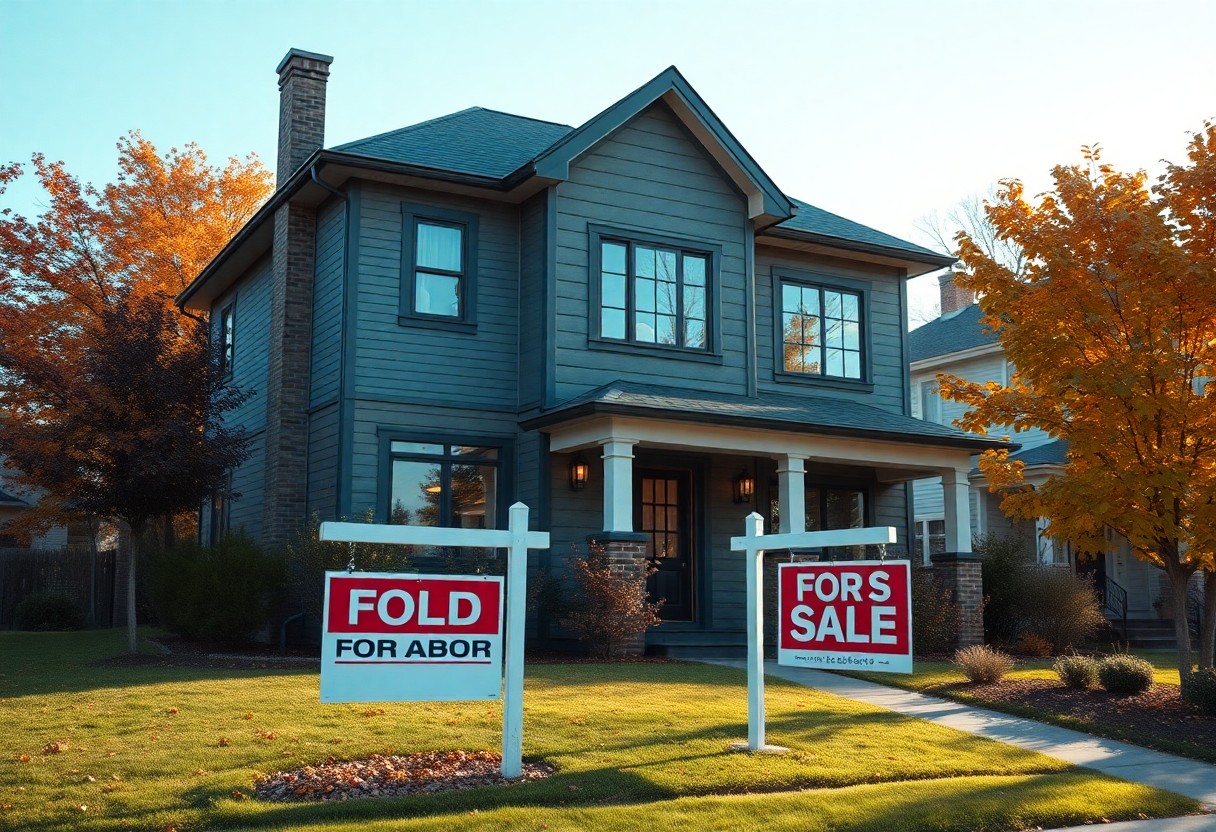Most homeowners find selling their property challenging in today’s market. With fluctuating prices and increasing competition, it’s imperative to utilize strategic marketing techniques to ensure your home stands out. By understanding what buyers are looking for and leveraging effective strategies, you can enhance your chances of a swift and profitable sale. This guide will provide you with the tools needed to market your home effectively, including Top Strategies for Selling a Home Quickly and Profitably to achieve your selling goals.

Key Takeaways:
- Understand your local market conditions to price your home competitively.
- Enhance your home’s appeal through staging and necessary repairs to attract potential buyers.
- Utilize high-quality photography and virtual tours in your listings to create engaging online presence.
- Leverage social media and online platforms to reach a broader audience and generate interest.
- Work with a knowledgeable real estate agent who understands strategic marketing techniques.
- Be flexible with showings and open houses to accommodate buyers’ schedules and increase visibility.
- Gather feedback from showings to make informed adjustments to your marketing strategy.
Understanding the Real Estate Market
A comprehensive grasp of the real estate market is imperative for effectively selling your home. With market dynamics constantly changing, you must stay informed about local price fluctuations, inventory levels, and buyer preferences. Recognizing these factors can significantly enhance your strategy, enabling you to price your home optimally and attract potential buyers in today’s competitive landscape.
Analyzing Current Trends
Estate trends play a pivotal role in shaping your selling strategy. By keeping a close eye on recent sales, average days on market, and price movements in your area, you can develop an informed approach that aligns with the prevailing market conditions, making your property more appealing to buyers.
Identifying Target Buyers
Some homeowners overlook the significance of identifying their target buyers, which can hinder a successful sale. Understanding the demographics and preferences of potential buyers allows you to tailor your marketing strategy effectively. You’ll need to consider factors such as age, income level, and lifestyle to position your home favorably within the market.
Another way to fine-tune your approach is through targeted marketing that speaks directly to your potential buyers. This could involve highlighting specific features of your home that resonate with them or utilizing platforms where these buyers are most active. By engaging with the right audience, you increase your chances of a quick sale and a better price. Make sure you also think about local amenities and community aspects that might appeal to your target audience, as these can greatly influence their buying decision.
1. Research local market trends for accurate pricing.
2. Enhance curb appeal with minor upgrades and landscaping.
3. Stage your home to highlight its best features.
4. Utilize professional photography for online listings.
5. Promote via social media and real estate platforms.
6. Host open houses to attract potential buyers.
Preparing Your Home for Sale
Even in a competitive market, effectively preparing your home for sale can make a significant difference in attracting potential buyers. Start by decluttering, deep cleaning, and making necessary repairs to showcase your property in the best light. You want to create an inviting atmosphere that allows buyers to envision themselves living in your space, ultimately leading to a quicker sale and possibly a higher price.
Essential Home Improvements
For many homeowners, making vital home improvements before listing can enhance appeal and value. Focus on minor renovations such as updating fixtures, painting walls in neutral tones, and ensuring your home’s curb appeal is inviting. These small investments can pay off significantly by attracting more buyers to your property.
Staging Tips to Attract Buyers
Little adjustments can have a huge impact on your home’s presentation. Consider the following staging tips to draw in potential buyers:
- Depersonalize your space by removing family photos and personal items.
- Arrange furniture to maximize space and create an open flow.
- Use natural light by opening curtains and strategically placing mirrors.
- Add fresh flowers or plants to bring warmth and liveliness.
The goal is to create a welcoming environment that allows buyers to imagine their own lives in your home.
Home staging is not just about aesthetics; it’s about creating an emotional connection with potential buyers. Focus on highlighting your home’s best features like spacious rooms and outdoor areas. Keep common areas tidy and neutral, making it easy for buyers to envision their belongings in the space. Utilize strategic lighting to enhance the ambiance and emphasize your home’s unique qualities. Pay attention to scent and cleanliness, as these factors can greatly influence a buyer’s perception. The result? A home that stands out and attracts serious offers.
Effective Pricing Strategies
Now, understanding effective pricing strategies is crucial for attracting potential buyers while maximizing your return on investment. By carefully evaluating your pricing approach, you can stand out in today’s competitive market and ensure your home sells promptly without undervaluing it.
Conducting a Comparative Market Analysis
Clearly, a comparative market analysis (CMA) provides valuable insights into how similar homes in your area are priced. This research helps you position your property competitively. Below is a breakdown of vital elements to consider:
| Recently Sold Homes | Analyze properties that sold within the last 3-6 months. |
| Active Listings | Look at current homes for sale to gauge competition. |
| Expired Listings | Review homes that didn’t sell to identify pricing pitfalls. |
| Market Trends | Assess whether the market is appreciating, stable, or declining. |
Setting the Right Listing Price
You need to set the right listing price to attract interest while ensuring the sale aligns with your expectations. It’s crucial to find a balance that considers the unique attributes of your home while still appealing to buyers.
Strategies to set the perfect listing price involve aligning your asking price with the current market value to maximize visibility. Avoid pricing your home too high, as this can lead to extended time on the market and potential buyer disinterest. Conduct research on comparable properties and incorporate any unique features of your home to justify your pricing. A competitive yet realistic approach will encourage serious inquiries and help you achieve a successful sale.
Marketing Your Home
All effective home selling strategies begin with a solid marketing plan. To maximize your home’s visibility, consider How to Market Your House for Sale in 2025. This approach not only attracts potential buyers but also highlights your property’s best features, increasing its chances of selling quickly and at a favorable price.
Utilizing Online Platforms
For a successful marketing strategy, taking advantage of online platforms is imperative. Utilize real estate websites, social media, and virtual tours to showcase your home to a broader audience and engage potential buyers effectively.
Traditional Marketing Techniques
One enduring approach in marketing your home involves utilizing traditional techniques. While digital strategies thrive in today’s market, methods like open houses, yard signs, and flyers continue to hold significant value in attracting buyers.
Utilizing traditional marketing techniques effectively allows you to create a personal touch in selling your home. Strategies such as hosting open houses or distributing flyers can foster real connections with potential buyers, sparking interest and facilitating immediate communication. Additionally, using yard signs can maintain your property’s visibility in the neighborhood, contributing to broader awareness and generating local interest. Embrace a blend of traditional and modern methods to maximize your reach.
Open Houses and Showings
To successfully navigate today’s competitive real estate market, hosting effective open houses and showings is vital. These events enable potential buyers to experience your home first-hand, allowing them to envision themselves living in the space. By creating a welcoming, inviting atmosphere, you can enhance interest and increase offers. Understanding the right strategies for these events can significantly impact your sale.
Planning Successful Open Houses
While planning an open house, focus on timing and marketing. Choose weekends or evenings when prospective buyers are most available. Promote your event through social media and local listings to maximize exposure. Also, consider staging your home to highlight its best features, offering the buyer a clear vision of its potential.
Tips for Showcasing Your Home
Houses appear more appealing when you focus on a few important elements to enhance their appeal. Consider these tips for showcasing your home effectively:
- Declutter and organize your space to create an inviting atmosphere.
- Utilize natural light by opening curtains and blinds.
- Highlight key features such as unique architecture or updated appliances.
- Keep the environment tidy, and add fresh flowers for a homey touch.
This approach helps potential buyers visualize themselves in your home and emphasizes the attractive qualities that may seal the deal.
This strategy further emphasizes the importance of creating an inviting atmosphere in your home for potential buyers. You may want to consider these additional aspects:
- Use neutral décor to appeal to a broader audience.
- Ensure every room is clean and well-lit.
- Provide information packets for guests to take home.
- Serve light refreshments to create a hospitable environment.
This careful attention to your home’s presentation can significantly influence buyer perceptions and increase the likelihood of receiving the right offer.

Negotiation Strategies
Keep in mind that skilled negotiation can make a substantial difference when selling your home. Understanding how to negotiate effectively involves not just talking down the price, but also establishing a rapport with potential buyers. By presenting your home in its best light and knowing when to make concessions or stand firm, you can navigate the negotiation process confidently, ultimately leading to a successful sale.
Understanding Buyer Psychology
You need to recognize that buyers are often influenced by their emotions and perceptions. Understanding buyer psychology will help you position your home in a way that appeals to them on a personal level. Highlighting unique features, staging effectively, and creating an inviting environment can stir positive feelings, driving buyers to see your home as the ideal choice.
Effective Counteroffers
To create effective counteroffers, it’s important to respond strategically to initial offers from potential buyers. Start by evaluating the buyer’s offer carefully and understanding their motivations. This enables you to develop a counteroffer that not only addresses their concerns but also highlights the value of your property.
This process requires an understanding of market trends and comparable properties. By being aware of these factors, you can enhance your counteroffer to emphasize any unique features of your home. Ensure that your counter is still within a reasonable range to avoid turning off potential buyers. Offering a small concession, such as a slight reduction or including appliances, can make your counteroffer more appealing while maintaining the value of your home. Ultimately, the goal is to ensure both you and the buyer feel satisfied with the outcome.
To wrap up
So, embracing strategic marketing is imperative when selling your home in today’s market. By understanding your target audience and utilizing effective digital tools, you can enhance your property’s visibility and appeal. Highlighting key features, staging effectively, and using professional imagery can set you apart. Additionally, collaborating with a skilled real estate agent can provide insights into market trends and help you navigate negotiations. By implementing these strategies, you position yourself for a successful sale that meets your goals.
FAQ
Q: What is strategic marketing in the context of selling a home?
A: Strategic marketing involves the use of targeted strategies and tactics to effectively promote and sell a home. It includes understanding the local real estate market, identifying potential buyers, and developing a marketing plan that highlights the property’s unique features to attract the right audience.
Q: How can I understand my local real estate market?
A: To grasp your local real estate market, analyze recent sales data, average days on the market, and current listings in your area. You can also consult real estate agents and use online resources to gain insights about pricing trends and buyer preferences in your neighborhood.
Q: What are some effective marketing strategies for selling my home?
A: Effective marketing strategies may include professional photography, virtual tours, social media campaigns, staging the home for showings, and hosting open houses. Tailoring these tactics to showcase the unique aspects of your home can significantly enhance its appeal to potential buyers.
Q: Why is home staging important when selling?
A: Home staging is important because it helps potential buyers envision themselves living in the space. By arranging furniture, decluttering, and adding decorative elements, staged homes often sell faster and at higher prices, as they create a welcoming atmosphere that highlights the property’s strengths.
Q: How can I leverage online platforms to market my home?
A: Online platforms such as real estate websites, social media, and property listing services allow for extensive reach. Utilize high-quality images, engaging descriptions, and targeted advertising on these platforms to connect with a wider audience. Regularly update your listings and engage with interested buyers online.
Q: Should I work with a real estate agent or sell my home by myself?
A: The choice between working with a real estate agent or selling independently depends on your comfort level with the selling process. An agent brings expertise, local knowledge, and negotiation skills, while selling by yourself can save on commissions. Evaluate your resources and experience to make an informed decision.
Q: How can I ensure my home is priced appropriately?
A: To set an appropriate price for your home, conduct a comparative market analysis (CMA) that evaluates similar properties in your area, taking into account their recent sale prices, sizes, and conditions. You can also consult a real estate professional for expert advice on pricing strategies based on current market trends.



